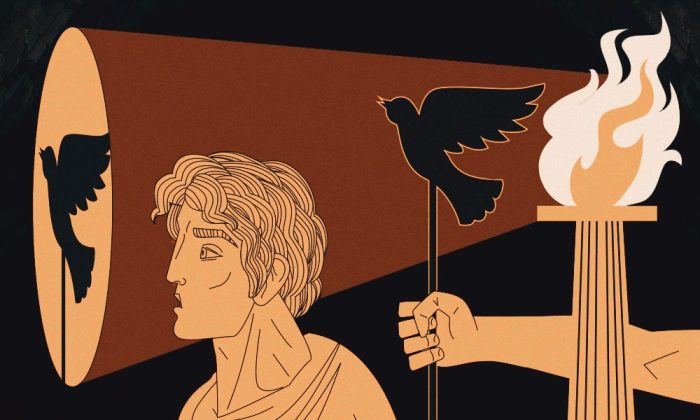By Atilla Azami –
 In a walk through the cafeteria or the commons of GSUB, one will inevitably overhear conversations of the students that occupy the walls of our academic institution. The trouble is that the conversations often aren’t academic, stimulating or even interesting in the slightest. Why? Isn’t a university supposed to be a hub for academia, intellectual stimulation and pursuit of enticing interests? The educational standstill isn’t isolated to NJCU. The social lesions abovementioned are merely symptoms of the cultural cancer that has engulfed American society.
In a walk through the cafeteria or the commons of GSUB, one will inevitably overhear conversations of the students that occupy the walls of our academic institution. The trouble is that the conversations often aren’t academic, stimulating or even interesting in the slightest. Why? Isn’t a university supposed to be a hub for academia, intellectual stimulation and pursuit of enticing interests? The educational standstill isn’t isolated to NJCU. The social lesions abovementioned are merely symptoms of the cultural cancer that has engulfed American society.
This is my third semester at NJCU, and it’s been my inference that most students aren’t really interested in an education. They complain about excessive homework and that their job takes up too much time. I am a working-class immigrant and I can empathize with their legitimate gripes. However, I’ve resorted to taking out hefty loans so that I could be a full-time student and dedicate my time for a worthwhile education. Even if one doesn’t believe in the intrinsic value of erudition, it’s inarguable that an education is an investment for the future.
That is partly my point; in the status quo, even the most essential needs of a civil society have become merely a means to the ultimate end: money. The university has become a de facto vocational school that provides “skills” to students to join the workforce and become efficient drones. They are “educated” just enough to be productive at their respective occupations. This is the new face of serfdom.
I’m not saying don’t major in fields that reflect the demand in the job market or anything else that will help provide security for the future—it’s a goal. We all have to join the workforce eventually. What I’m saying is that the college experience should be much more than procuring “skills” for work. The so-called skills that are necessary for the job will be easily ascertained on the job, given that during college one used the time to hone the faculties of the mind through a comprehensive course list that demands critical thinking and piques interest, both of which whet the appetite for inquiry. Ultimately, the goal for an undergraduate degree should be to teach students critical thinking and how to learn, not to acquire “techne” (skills) rather ”episteme” (knowledge), as Plato distinguished. Unfortunately, the squalor of The Acropolis has seeped into The Academy.
The epoch preceding the Age of Enlightenment has been appropriately dubbed the Middle Ages or, for the sake of metaphorical cohesiveness, the “Dark Ages” and was directly correlated to the level of education of its population. Prior to the scientific revolution that fueled enlightenment, myth supplied by those in power, The Catholic Church at that time dominated the stage to manipulate the public. Contemporarily, it’s the corporations that supply the myths implemented through advertisements. The sources have changed; the message is essentially the same. Rather than pray and make me rich, it’s consume and make me rich.
The ages old class struggles aside, there are tremendous rewards in the pursuit of education. I believe, as humans, there is a priori hunger for learning. That is not to say there are no levels of this desire in individuals; clearly, they fluctuate. However, if one follows a path of learning, whether autodidactic or structural, an incredible new meaning to life is created. Not everyone is fit, or interested, in pursuing academia as a profession, that is a given; however, in the wise words of Socrates, “the life which is unexamined is not worth living.” If we don’t cultivate and harvest the inherent need for knowledge, we will fall prey to things like television, senseless browsing of the internet ad infinitum, and insatiable consumption of worthless products.
The biggest difference between an Ivy League student and an NJCU student is the expectation of success that we demand of ourselves. Society shouting our inevitable failure is only reinforced by the low standard of education demanded by the faculty. We, as a result, internalize and respond to these societal expectations and settle for the subpar. I say, let’s rise above and demand excellence. Because of the obstacles we’ve faced since our birth, we have unmatched tenacity and will. With these precious assets focused, there is no reason why we can’t prove the naysayers, the scoffers and the skeptics wrong. “I am the master of my fate/I am the captain of my soul.”
A free-thinking, critical populace is not in the best interest of those in power that want the majority to keep their heads down and obey. Without a critical mind, one cannot discern self-interest. As long as we let other people do our thinking for us, we won’t get what we need. If we don’t know what we really need, we won’t develop our own voice. Without our own voice, we will carry out other people’s interests. We can’t leave it up to the politicians to seek out the best interests of society. Politicians aren’t genuinely interested in justice. It’s up to us to make it happen.
So, before you ask yourself why the author of this opinion piece is such a pompous [insert dismissive insult here], ask why the poverty rate is currently higher than it has been in past 40 years; why there are more people in prison in America—over 60% of them minorities—than there were Russians in the Gulag during Stalin’s reign; why the arrival of cast members of the Jersey Shore in Jersey City is newsworthy?









Cin • Mar 16, 2012 at 10:43 am
Thanks Atilla.